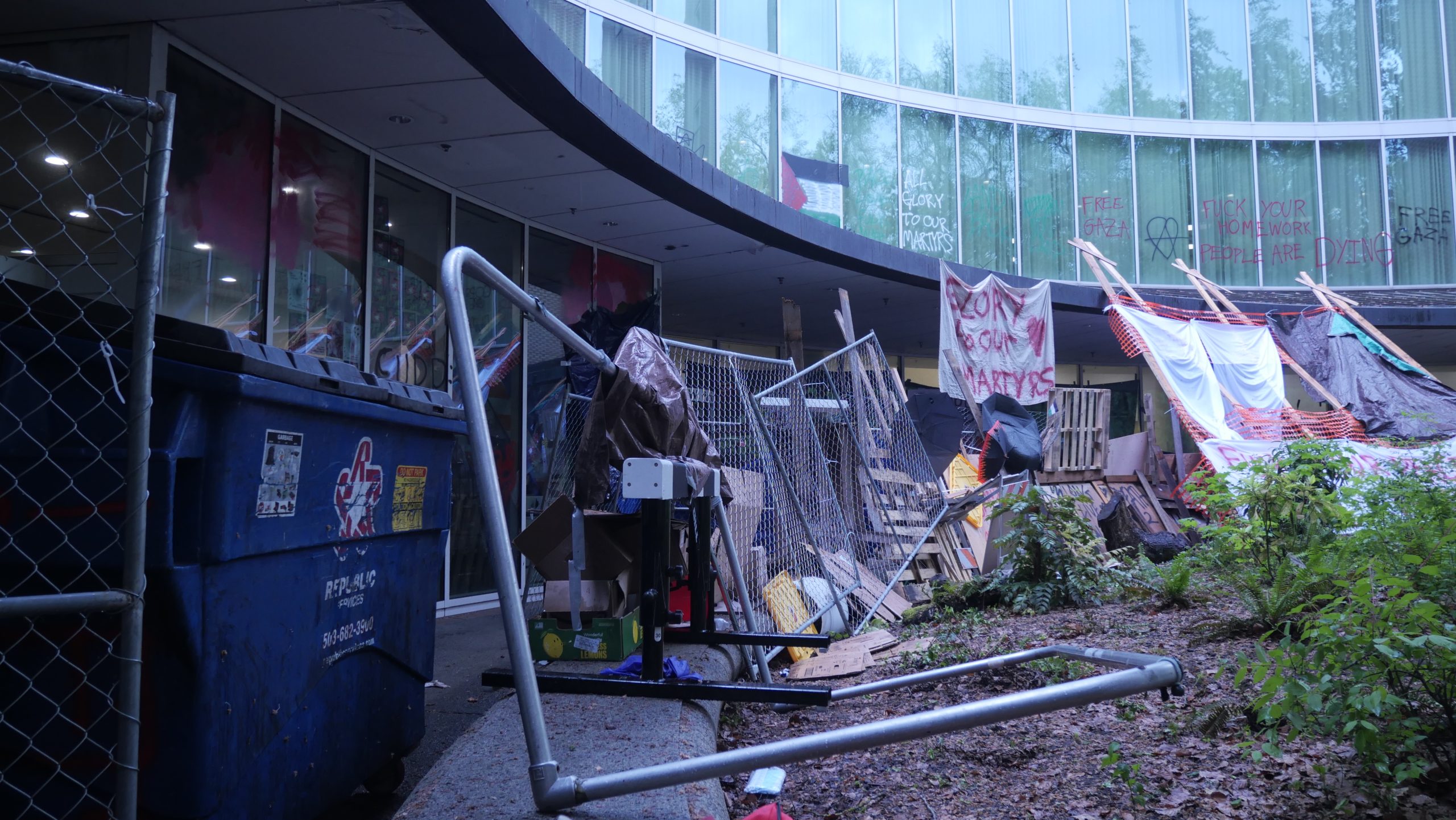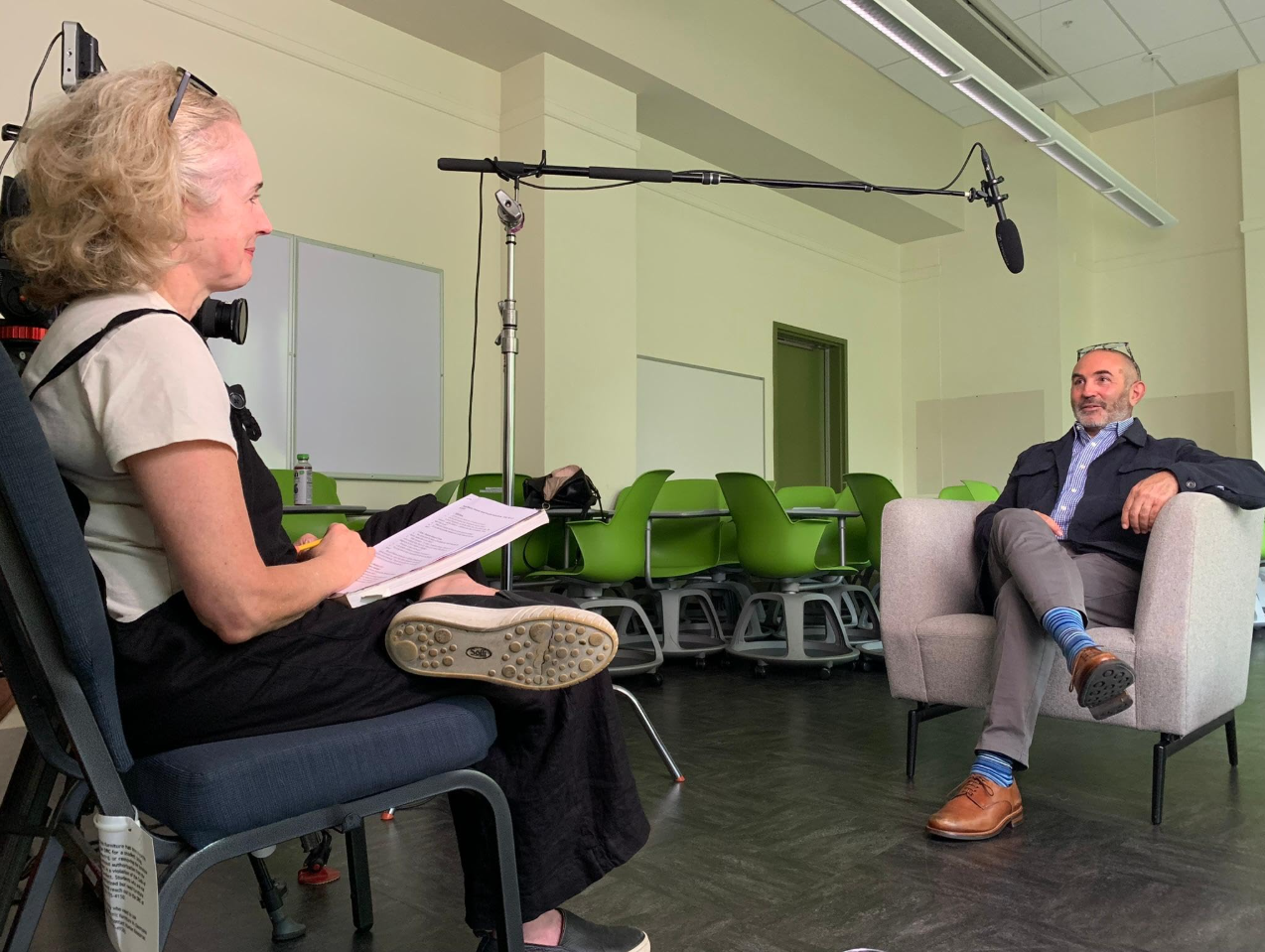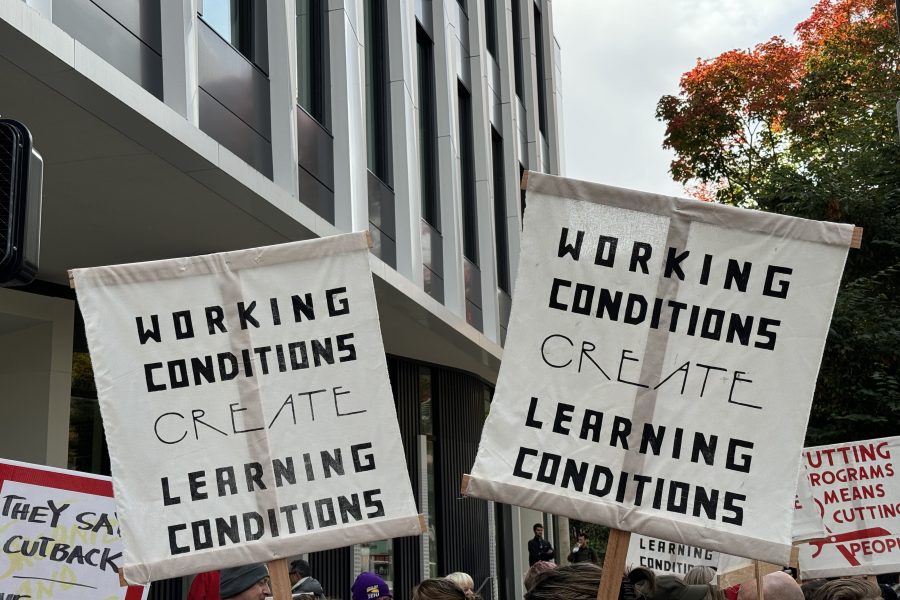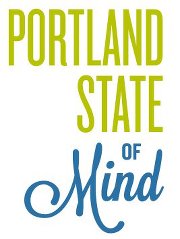Freedom of speech is a hallmark of modern academia, providing the necessary foundation for scholars and students to rigorously study even the most controversial of topics without fear of penalty. However, is there an exception to this rule?
This Sunday, The Palestine Exception invites viewers to explore that question through the lens of a familiar topic to those in the Portland State community: the pro-Palestinian protests that swept through college campuses across the nation last year. Created by PSU professors and released late last year, the documentary features footage from campus demonstrations across the US, as well as interviews from various scholars and students—many of them from PSU. The film is scheduled for a screening this Sunday evening at Cinema 21.
What is the “Palestine exception?” The phrase isn’t unique to the documentary, it’s actually a concept that’s been discussed in academic circles for years now. The concept first gained prominence after the release of a 2015 report titled “The Palestine Exception to Free Speech: A Movement Under Attack in the US,” published by the Center for Constitutional Rights and Palestine Legal. The report explores instances in which individuals and groups faced uncharacteristic suppression for pro-Palestinian activism.
“This is about the Palestine exception to academic freedom,” said PSU professor of film and co-director Jennifer Ruth. “…I certainly was aware of how incredibly sensitive this topic is and the degree to which rules kind of pop up or get enforced all of a sudden in ways that they hadn’t been enforced around other issues, [like] LGBTQ activism [or] anti-racism activism.”
Due to the sensitive nature of the film’s subjects and those interviewed, the filmmakers decided to take a careful approach in how they presented their findings.
“Throughout my career, I’ve developed an extension of participatory action research called ‘participatory action documentary filmmaking’ that involves extensive consultations with communities, learning as you go,” said PSU professor of psychology and director Jan Haaken.
“What are the important questions? What are the potential areas of risk, and how do you talk with people and negotiate where people are in vulnerable situations?” Haaken continued. “Everyone who has a speaking part has been able to see a rough cut or work sample, see if they’re comfortable and can defend what we’ve selected from the interviews to include.”
This is not the first documentary that has earned Haaken the title of director. The clinical psychologist has directed nine feature films and has won multiple awards for her work.
PSU community members who were around last spring will remember the significant upheaval the campus faced in the midst of these nationwide anti-war protests. Featured in the film are several PSU students who took part in these demonstrations.
“The students closer to home were actually very much towards the end, when they felt more comfortable and they understood what kind of film we were making,” Ruth said.
Those who intend to see the film can expect an exploration of themes such as academic freedom and activism. The film also examines the general Israel-Palestine situation through an academic lens, offering several historic parallels and a strong emphasis on community-based change.
“I’ve also been interested throughout my career in groups coming together to resist enormous, powerful forces,” Haaken said. “So rather than a heroic individual… I’m really interested… in how communities come together. How they form alliances or support, particularly in confronting very intimidating forces that are either punishing them or silencing them in some way.”
The Palestine Exception is set to screen at Cinema 21 in Northwest Portland at 4 p.m. on Sunday, Jan. 26. Tickets can be purchased at the Cinema 21 website at www.cinema21.com.







